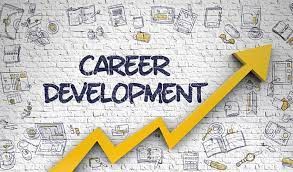6 Factors Of Career Success
What do employers look for in potential employees? That was the question that was posted recently on a career discussion forum online. Naturally, for each different position, the particular answers to that question would be different. However, there are some common skills that employers look for in all employees, whether the employee happens to be a network engineer or a fry cook. In-Demand Skills for Success 1. BASIC SKILLS –Reading, writing and maths! Employers are seeking employees who can read well, can write coherently, and who can calculate mathematics in a business environment (fractions, percentages, etc.) Add to that the modern basic skills of keyboarding skill, basic computer knowledge, and the ability to use most computerized tools to round out the basic skill sets needed for employment success. 2. PERSONAL SKILLS- Can a potential employee speak well? Can he/she answer questions of customers in a positive, informative manner? Can the prospect provide good customer service? While not everyone has an outgoing sales personality, successful employees can communicate in a non-confrontational, positive manner with their coworkers, team members, subordinates, management, and customers. Being able to work well with others is a vital skill for success in all jobs. 3. JOB ATTAINMENT- Job search is a process that requires a great deal of dedication and attention to be conducted successfully. It follows the old principle that many veteran professionals refer to as GIGO ‚ Garbage In, Garbage Out. If you put the lousy effort in, you will receive lousy results. Employers are seeking employees who know how to present themselves in a positive manner and who display enthusiasm and knowledge about the companies they approach. Not only do candidates get evaluated on their skills and experience, but also on how they are approaching the job search. Enthusiastic candidates with fewer skills have an even chance of getting the job as dull candidates with better skills. 4. JOB SURVIVAL- Now there’s a hot topic in this period of layoffs. Who gets the axe and who doesn’t is often a matter of numbers, but it is also often a matter of performance. Employees who have consistently demonstrated their worth, taken initiative, and made themselves a valuable asset to the company have lower incidences of being downsized than employees who put forth mediocre or average effort in their jobs. Surviving within a company through layoffs or moving up the career ladder is a success skill that is learned and is consciously cultivated among successful professionals. 5. PROFESSIONAL DEVELOPMENT- As all high tech and engineering pros know‚ it’s learning or burn in today’s work environment. Attaining new skills, applying new concepts, and updating established skills is an absolute necessities to succeed in today’s workforce. The successful individual is constantly attending seminars, taking classes, attaining training on new products or releases, and otherwise learning new skills that will keep them marketable in their careers. Successful people are lifelong learners. Employers are looking for people who have the training necessary to fulfill their needs. 6. CAREER DEVELOPMENT- Career Development differs from Professional Development. Professional Development is learning while Career Development is a planning and goal-setting process. Successful individuals design a career plan with written goals for the short term and long term. They lay out the steps needed to move their careers from Point A to Point B within Time Frame C and plan how they are going to achieve those steps. Successful people have someone to whom they are accountable for their progress and who will monitor their success in achieving their goals. Employers are seeking individuals who (believe it or not) wish to commit to the company for a long period of time. Good career progression is a high selling point of candidates to prospective employers. How do you measure up? Do you have the 6 In-Demand Skills for Success? Feel like you need some help? DM me for a free consultation call! Thanks & Regards, Karishma Dandona



